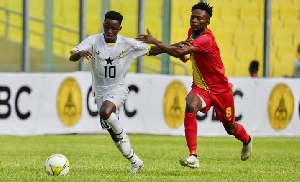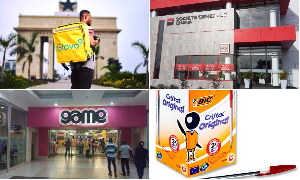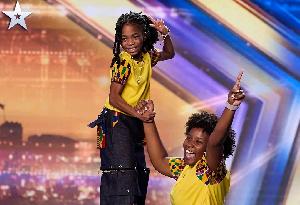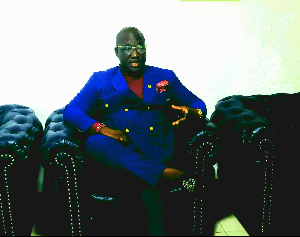- Home - News
- TWI News | TV
- Polls
- Year In Review
- News Archive
- Crime & Punishment
- Politics
- Regional
- Editorial
- Health
- Ghanaians Abroad
- Tabloid
- Africa
- Religion
- Election 2020
- Coronavirus
- News Videos | TV
- Photo Archives
- News Headlines
- Press Release
Sports News of Friday, 2 August 2002
Source: An Athlete (Manchester)
25+29 = 1... Only in Ghana
Had Mauritius-based Margaret Simpson failed to win a bronze in the women’s heptathlon, the result of the equation would be zero.
In the most disastrous Commonwealth sporting appearance by Ghana since nationhood in 1957, our 25 athletes and 29 officials contingent to Manchester delivered only one bronze.
If I had my way, all the 29 officials, the minister for sports, and those who approved this trip, should be put before the fast track court, for deliberately causing financial loss to the state. But that would be asking too much from a nation led by a tourist president who, as I write, is with 27 officials in Malaysia.
In this so-called age of HIPIC and "positive change", how on earth can any competent government justify sending more officials than athletes to a major competition? Wouldn’t it have made more sense to give, say, 20 of the places given to the officials to athletes? Then, Ghana would have had a better chance of getting some more medals or giving the youth some experience.
Athletics and Boxing were area’s Ghana had hopes in winning medals. However, a standoff between athletes and officials, leading to Coach Atuahene’s downfall and Ghana sending a team of only five track and field activists minus the traditional stronghold of the sprint relay, were all signals for trouble ahead. Despite his high rankings in the world list, sprinter Abdul Aziz Zakari failed to win anything in the 100 or 200m. The failure of triple jumper, Andrew Owusu, to emulate or improve upon his own previous silver-winning leap at the 1998 Games in Kuala Lumpur and the total annihilation of the boxing team in Manchester, are most worrying. At the previous Kuala Lumpur Games, considered a low point in Ghana’s Commonwealth sports tradition, Owusu’s silver added to a gold and three bronze medals from boxing to give the nation a modest haul of five. Lightweight Raymond Narh won the gold while heavyweight Aloryi Moyoyo, middleweight Charles Adamu and super-middleweight James Toney won the bronze medals in boxing. Even that was considered nothing, compared to earlier times when Ghanaian athletes and boxers were among those who set the standard for others to meet.
The peak of that glory was 40years ago in Perth, Australia, where Ghana shared the 4x100m quartet gold with England and was declared the strongest boxing nation in the whole of the Commonwealth.
Boxers Eddy Blay, Sulley Shittu and Joe Darkey and athletes Robert Abossey Kotei, Mike Ahey, B. K. Mends, Bukari Bashiru and M. F. Okantey then, provided the measure by which other nationals were judged.
Through Kingston, Jamaica in 1968 and the latter eras of Alice Anum, Prince Amartey and Ohene Karikari the high standard was maintained until lately. And Ghanaians would follow the remaining days of the competition with keen interest, to find how Aziz, Lartey or Amorkor Ollenu would help bring back the smiles.
It is disgraceful that a sporting commonwealth nation like Ghana with about 25 athletes brings home one bronze.
Mr. Kufuor, stop the useless traveling and our officials will follow suit
NOTE: Officials make up 29% of the Australian team and 31% of the Barbados team.
PS: I was in manchester, but did not compete. I paid my own way to the games.










